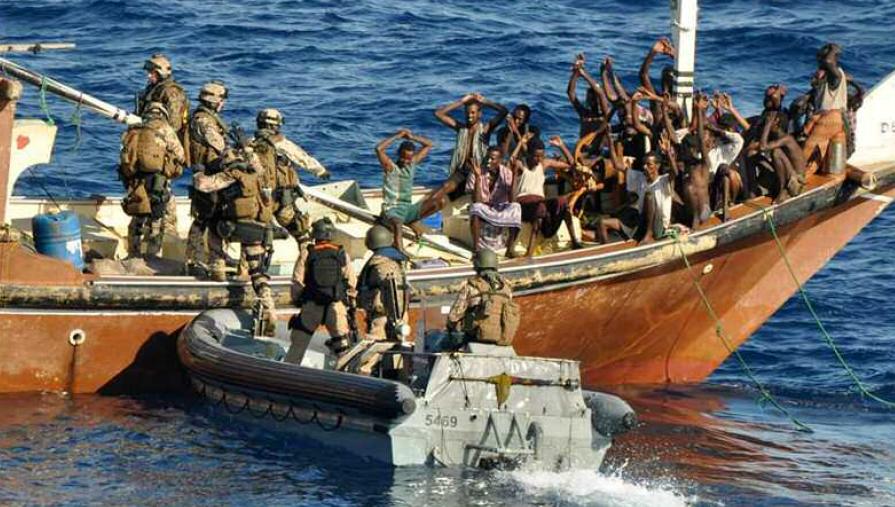
The European Union Naval Force (EUNAVFOR) has been conducting Operation Atalanta since 2008. The operation is an effort to combat and prevent piracy in the Indian Ocean and Gulf of Aden. Finally, it seems that 2012 is seeing the first significant dip in number of pirate attacks in this area.
The United Kingdom’s House of Lords just released a follow up report on the counter-piracy activities. The report praised the efforts of EUNAVFOR, as well as making conclusions and recommendations regarding the general problem of piracy. One of the recommendations was to extend the date of the operation beyond December 2014, when it is scheduled to end.
The report asserted that the increased military presence served as a vial deterrent to pirate activity, resulting in the drop in number of attacks. However, a certain amount of uncertainty about the future remains: what will happen when military forces leave?
While the navies have certainly lead the charge against the pirates, private security contractors have played an increasing role in securing the merchant ships themselves, and may provide the future path for security. Given world-wide defense-spending cuts, the navies will not be able to hang around forever. It may be that individually secured ships are enough to deter pirates, but perhaps not.
The nature of pirates and their organizations is still unclear to many. Only with further study of pirates, their numbers and how they operate will analysts be able to point to a proper deterrent. Because of this lack of knowledge, it is difficult to make concrete assertions as to exactly what is responsible for the drop in attacks.
Of course, the most permanent solution lies on sea, not land. The root of the problem is in Somalia’s instability and struggling economy– many in the war-torn country turn to piracy not out of bloodlust, but out of desperation. The report from the House of Lords acknowledges this, but places emphasis on joint-training exercises aimed at bolstering the operational capacity of Somali security forces.
However, if the root of Somalia’s political and economic instability isn’t solved, no amount of preparation will leave the ill-equipped Somali security forces capable of combatting the threat alone.
Another significant aspect of the report is that it seems to have done a 180 degree turn in its opinion on armed, private guards aboard merchant vessels. For some reason, the House of Lords concurred with a 2010 opinion of the International Maritime Organization that hiring armed guards would only increase the problem. This perspective seemed to have many logical holes in it at the time, and now the proof is in the pudding– this report acknowledges the 100 percent success rate of armed guards: no ship employing such security has been subject to a pirate attack.
This strategy is indeed only a short to middle-term solution, however. Issues regarding jurisdiction and the rules of engagement still exist in this area, and many ports have outlawed ships carrying weapons to enter their waters. Finally, it is such an expense to the shipping companies that they would like to see a more permanent and less costly solution to the risks.
The report is correct in that EUNAVFOR has had a very positive effect on Somali piracy, and highlights some important points in that vein. However, the permanent answer still lies within the land borders of Somalia, not in aggressive treatment of the symptoms of the issue at sea.